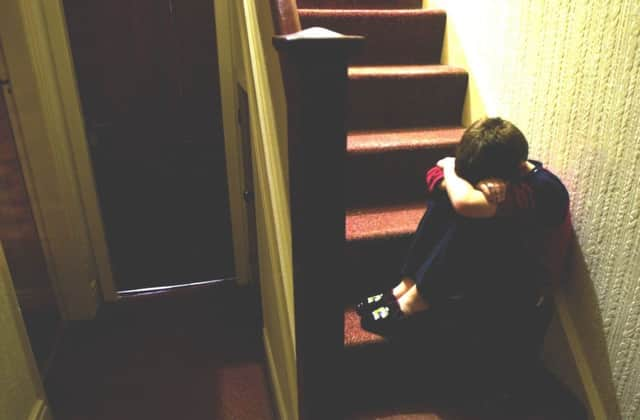Jayne Dowle: Police and NSPCC's betrayal over child sex abuse images


This is from Simon Bailey, the National Police Chiefs’ Council lead officer for child protection. It’s certainly not a view supported by many parents. I don’t know of anything which unites decent adults as much as an anti-paedophilia stance; it is not only intolerable, but inexcusable.
It is bad enough to hear this from the police, whose own culpability in covering up a string of sex abuse cases is well-known. What is even worse is to hear it echoed by the NSPCC, the voluntary organisation which is supposed to represent the interests of children. A spokesman concurs: “We cannot arrest our way out of the situation – if we are to stem this tide and protect more children we must make prevention and rehabilitation a priority.”
Advertisement
Hide AdAdvertisement
Hide AdDoes the NSPCC not accept that viewing images of child pornography is all too often the first step to full-blown abuse? Of course counselling and support should be given to those who say that they can’t help themselves, but this ought to be coupled with severe punishment too.
I do agree that prevention needs to be a priority. And then prison. As a parent, I don’t care to accept the often-cited excuse that there aren’t enough prisons in the country to house all the individuals convicted of paedophilia.
I’d tell the Home Office to build more. There is no bigger priority than safeguarding our children. The effects of sexual abuse are not only immediately distressing and destructive, the aftermath continues into adult life. This can lead to severe psychological problems, difficulty in forming relationships and even criminal behaviour in those who were once victims themselves.
I haven’t got the figures, and I don’t suppose anyone else has either. However, if we’re talking pure economics, how can it be more cost-effective to provide rehabilitation instead of incarceration? In either case, the perpetrator has to be supported by the taxpayer. At least with a prison sentence we know that the abuser is secure behind bars. And it sends a clear message to other would-be offenders that this behaviour is simply not acceptable in a civilised society.
Advertisement
Hide AdAdvertisement
Hide AdAlso, why do the police and NSPCC have to make the two alternative courses of action sound so mutually exclusive? Counsel and treat by all means, but do it where offenders are away from other people.
Let’s be realistic here. As with any other criminal activity, those in the midst of carrying it out know all the loopholes. You’re not telling me that sex offenders are any different. They are often clever, manipulative people. They know what to say to the police and in court to come away with the softest “sentence” possible.
In addition, I can’t believe that the NSPCC are happy to bandy around terms such as “prevention” and “rehabilitation” without supporting their views with evidence.
I’ll give you a piece of evidence though, and this is the NSPCC’s own. One in 20 children in the UK has been sexually abused. That’s one child in every primary school class. If this is not proof that a tough approach is needed, I don’t know what is.
Advertisement
Hide AdAdvertisement
Hide AdI’m sure that any number of social workers would be prepared to come forward at this point and put up a string of arguments to defend rehabilitation in favour of redress behind bars. I would listen with respect, but I see the reality of rehabilitation on an almost-daily basis.
A decade or so ago, a rehabilitation institution was opened – amid great public outcry – not far from where I live. For reasons which were never fully justified, the authorities decided to site this psychiatric facility in the middle of an area full of families, even though serious concerns were raised.
Now, I’m not saying for a moment that its presence has led to an increase in offences against children in the locality. There is no evidence of this. However the shambling figures who emerge from it to visit the shop for sweets and cigarettes, tagged and under the close supervision of their carers, are a constant reminder that there are individuals with complex issues being “rehabilitated” right in front of us.
I don’t feel comfortable about any aspect of this, ever. I won’t allow my daughter, who is 11, near this shop on her own. I am not paranoid or over-protective. I just want to know that my child is safe, not only from physical harm but also from even a glance or a gesture from an adult who might see her as a potential victim.
If the police lead for child protection and the spokesman for the NSPCC had to live with the reality of rehabilitation, they might see things rather differently.